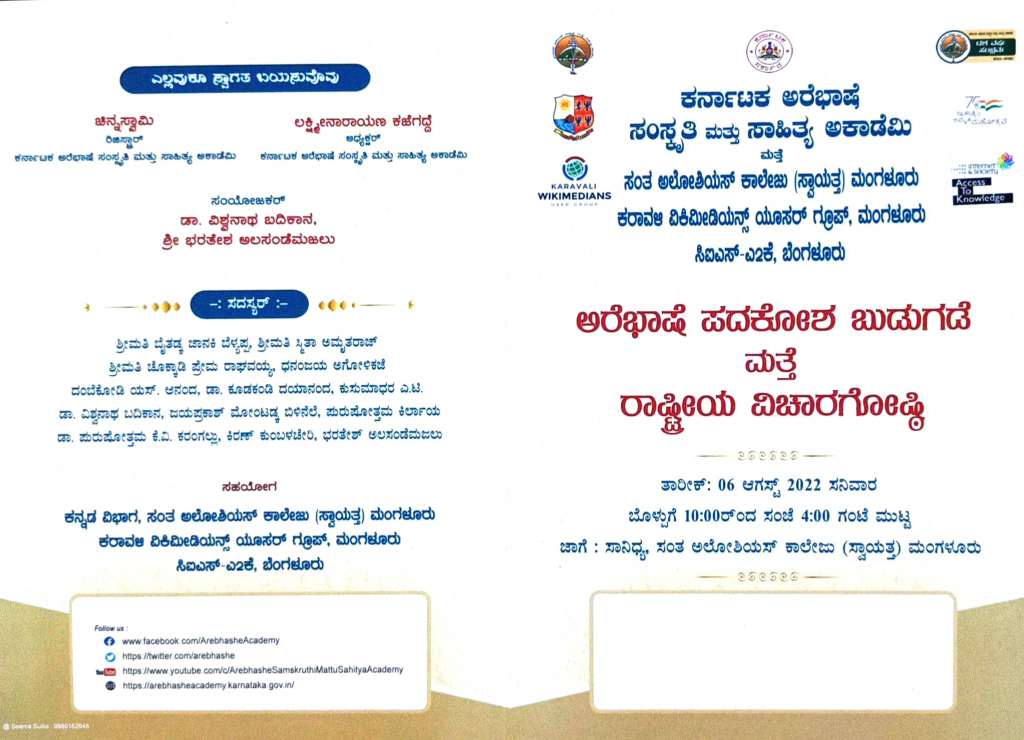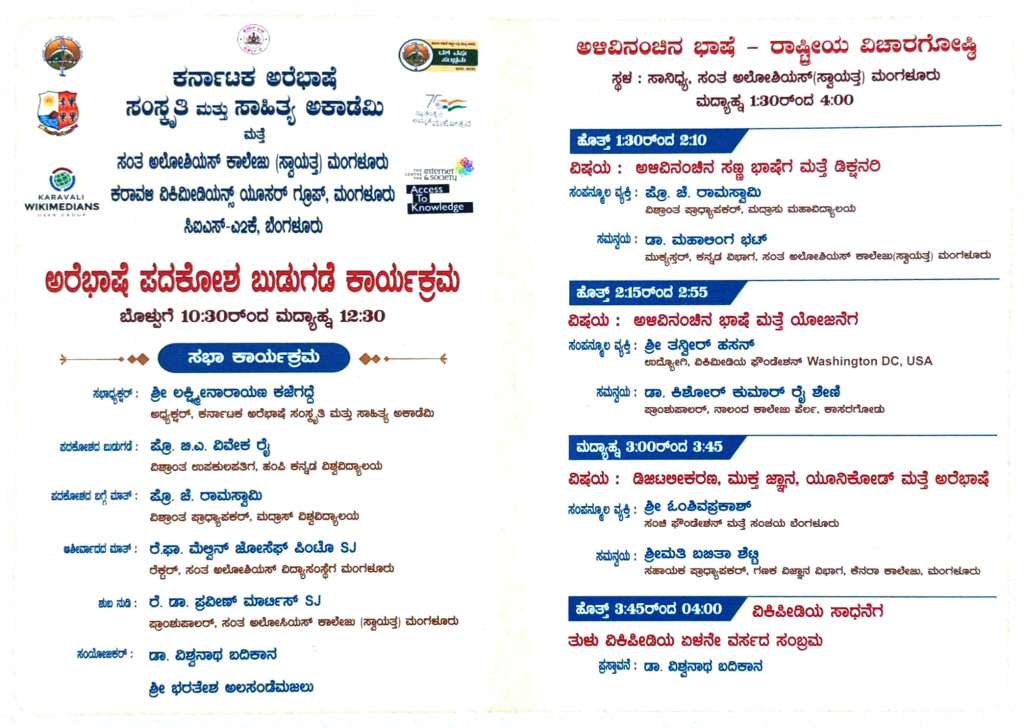On the 6th of August, 2022 the Tulu Wikipedia– an essential site for promoting the Tulu language and culture- will be entering its 7th year. Tulu Wikipedia has been live since 2007, and was announced by Katherine Maher, Ex-Executive Director (The Wikimedia Foundation) as India’s 23rd language Wikipedia in 2016 and has been on a meteoric rise ever since. Currently they have over 1,650 complete articles that cover over 6,000 pages.
The Tulu language is mainly spoken in parts of South-Western India (Dakshina Kannada, Udupi, Kodagu, Hassan, Chikamagalur District of Karnataka State and Kasaragod District of Kerala State) and due to a vast reliance on oral traditions, the language is endangered and efforts must be made to preserve the Tulu culture/traditions. Led by the belief that people all over the world should be able to find good quality articles in the language, the Tulu Wikimedians have been organizing various activities to ensure the culture is safeguarded and adequately represented digitally.
HERE’S YOUR SNEAK-PEEK INTO THE ACTIVITIES OF THE TULU WIKIMEDIANS
Seeking High- Level Advice
A group has been visiting the homes and offices of language scholars, educationalists, and experts to showcase the importance of Wikipedia in the digital-era, introduce them to the work done by the Wikimedians in preserving Tulu culture and to gain perspective from the resource persons on how to get more Tulu articles added to Tulu Wikipedia. Through this initiative, an innovative project called Home to Home Wiki was launched which has seen multiple editions.
Digitizing Cultural Traditions
With the aim of showing and remembering various types of folk dances, rituals, and worship across the Tulunadu to the next generation, the Karavali Wikimedians have been regularly sharing information on Wikipedia, Wikicommons on different cultural practices including agriculture-related rituals such as Pursereg Kattuna– A religious dance during the harvest month, mainly celebrated in Belthangady region, and Kori Kambla in Tulu Nadu. The Tulu Wikipedia also includes many thematic articles on topics such as women, agriculture, cultural, medicinal plants and more.
Educating the Young: Gen-Next
The group has formed ‘Wikipedia Student Association(s)’ in various colleges of the region where teams of students have been formed with the aim of developing and collecting Tulu articles, an important feature of this association is that the students not only edit in Tulu but also in the other sister languages. In coastal Karnataka, the Tulu language is now the subject of text for primary School students who are also writing exams in the Tulu language.
During various edit-a-thons hosted by the user group several articles have been created according to the Tulu text of the Karnataka State Government, benefitting primary and high school students.
7TH ANNIVERSARY CELEBRATIONS


August is very busy for The Karavali Wikimedians User Group, which is the group that hosts the Tulu language along with Kannada and Konkani who are not only hosting their anniversary celebrations but are hosting their first in-person event after years to commemorate Wikimania 2022.
In the lead up to their anniversary, the group launched a 22-day-long article writing edit-a-thon competition that presently has added over 160 new articles in just 21 days. This is also the first time they are hosting the competition at an international level by using Fountain Tools.
On the day of their anniversary, the group is co-hosting a workshop in Mangalore, Karnataka on endangered languages with Coastal Wikimedia Users Group, Karnataka Arebhashe Samskriti & Sahitya Academy, and St. Aloysius Autonomous College, Mangalore.
During the workshop, the Karnataka Arebhashe Culture and Sahitya Academy will release an Arebhashe (a subdialect of Kannada) dictionary which has inputs from two members of the Karavali Wikimedians who have been supporting in the preparation of the dictionary, Dr. Vishwanatha Badikana is Editor in Chief, Bharathesha Alasandemajalu is Editor of this dictionary . The launch coupled with various workshops and talks focused on giving patronage to endangered languages and their digitization would be hosted, and attended by scholars, students and members of the user group.
WHAT’S NEXT?
Right after the anniversary, the group will get busy with the planning for Wikimania 2022 which would bring together the community for an in person meeting after two years.
In the near future, there are plans to scientifically document the Tulu-related folk songs, folk dances, rituals, and worship of Tulu Nadu, which is a paradise of folklore. The endangered Tulu language needs its own long-term projects like cultural vocabulary and encyclopedia along with a need for textbook-related articles to help Tulu primary, high school, and postgraduate students. The Wikimedians are busy planning these next steps and would be happy for any movement-wide support in the same.

Can you help us translate this article?
In order for this article to reach as many people as possible we would like your help. Can you translate this article to get the message out?
Start translation